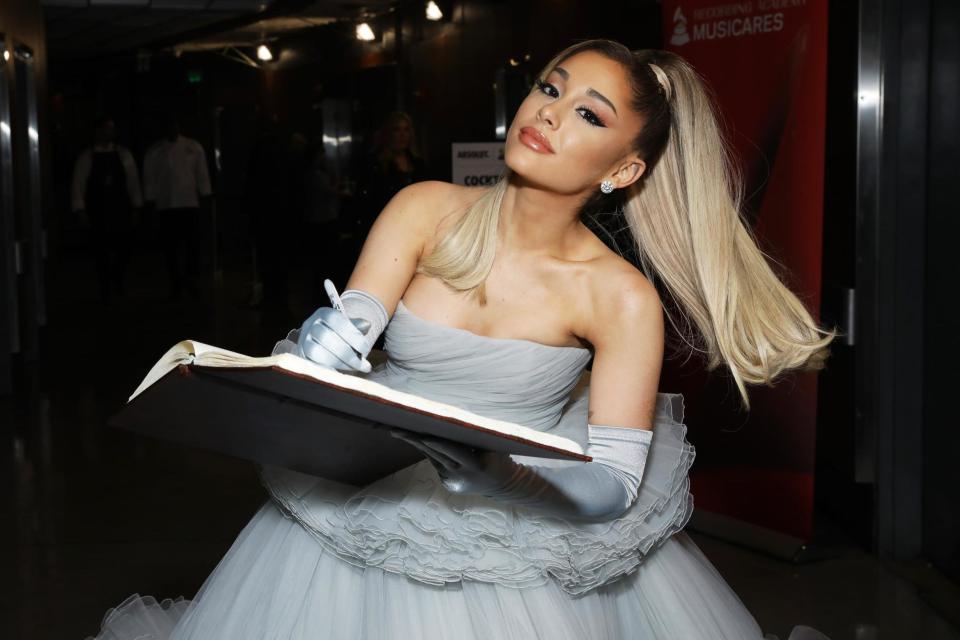‘Some celebrity endorsements can hurt’: Bernie Sanders is winning in star power – but losing the fight for presidency

Over the weekend, Neil Young publicly endorsed Bernie Sanders in the 2020 presidential race – adding his name to the long list of celebrities who have backed the Vermont Senator. “I support Bernie because I listen to what he says,” Young wrote on his website. “Every point he makes is what I believe in. Every one.”
Jane Fonda announced her support for Sanders around the same time, telling USA Today she views him as the candidate most capable of tackling climate change. “We have to get a climate president in office, and there’s only one right now, and that’s Bernie Sanders,” she told the newspaper before a rally in Los Angeles. “So, I’m indirectly saying I believe you have to support the climate candidate.”
In addition to Young and Fonda, Ariana Grande, Cardi B, Cynthia Nixon, Mark Ruffalo, Emily Ratajkowski, Danny Glover, Zoë Kravitz, and more have rallied behind the candidate – one of three Democrats still in the running, next to Joe Biden and Tulsi Gabbard. Others, including Alec Baldwin, Cher, and George RR Martin, have expressed sympathies for Biden, but Sanders was going into this Tuesday’s primaries with considerable support from A-listers all around.
Celebrity endorsements have become somewhat of a question mark in the current electoral landscape. Back in 2016, Hillary Clinton was able to count on the support of dozens of superstars, from Bruce Springsteen to Beyoncé and Katy Perry, but still fell short in the election, losing instead to Donald Trump – a celebrity himself.
“Celebrity endorsements are still an important part of US presidential politics,” says David Jackson, a professor of political science at Bowling Green State University, whose research has touched on celebrity endorsements in politics. “ Candidates are expected to have celebrity endorsements, along with the usual tools necessary to win an election such as money, talented staff, and traditional media and elected official endorsements. Perhaps because they have become so common, their effects may seem diminished.”
While some scepticism might be justified, the importance of star power on contemporary politics shouldn’t be overlooked. Barack Obama, for example, went into his 2008 campaign with “a tremendous amount of celebrity support”, Jackson recalls, “and there’s evidence from the economics literature that Oprah Winfrey’s endorsement of him was worth at least a million votes in the Democratic primary campaign”.
Donald Trump’s 2016 victory highlights a counter-intuitive dynamic at play on the Republican side. “Trump ascended to the presidency with very limited Hollywood support, but here’s the irony,” says Jackson. “Traditionally, Republicans and conservatives complained about celebrity endorsements, often saying they are not influenced by Hollywood elites and admonishing celebrities to ‘shut up and sing.’ But then they voted for a celebrity with no public service experience. That was quite a change.”
One of the downsides of a celebrity endorsement is the idea of elitism, in a field where relatability and electability often go hand in hand. For that reason, celebrities who are perceived as more down-to-earth than their counterparts might provide more efficient support than others. “Celebrities live lives completely different from the typical American,” says Jackson. “That’s why celebrities who are viewed as credible and likable do better as endorsers than those who come off as out of touch or as having contempt for their fans.”
Back in October 2015, Jackson and his colleague Melissa Miller, an associate professor of political science at Bowling Green State University, took a closer look at the Ohio general election, and how celebrity endorsements made voters more or less likely to cast their ballot for a specific candidate.
The research showed that “none of the celebrities showed a net positive effect, and four of them showed double-digit net negative effects”. But while Jackson has “no doubt that some celebrity endorsements can hurt”, closer inspection shows that there were positive celebrity effects on some voters – particularly if they personally knew of, and liked, the celebrity in question.
“Celebrity culture is becoming more fragmented, and some people may be very popular with some segments of the population but either unknown or unpopular among others,” says Jackson.
Michigan, Missouri, Mississippi, Washington, North Dakota and Idaho are voting this Tuesday. The results in Michigan, where Sanders won in 2016, are expected to play a large part in shaping the future of his White House run.
Read more
Joe Biden predicted to win every primary on 'Big Tuesday'
Michigan is the only state that matters in the March 10 primaries
Mini-Super Tuesday: What's at stake for Biden and Sanders?
Trump ‘fretting over coronavirus’ as Biden opens up huge poll lead

 Yahoo News
Yahoo News 